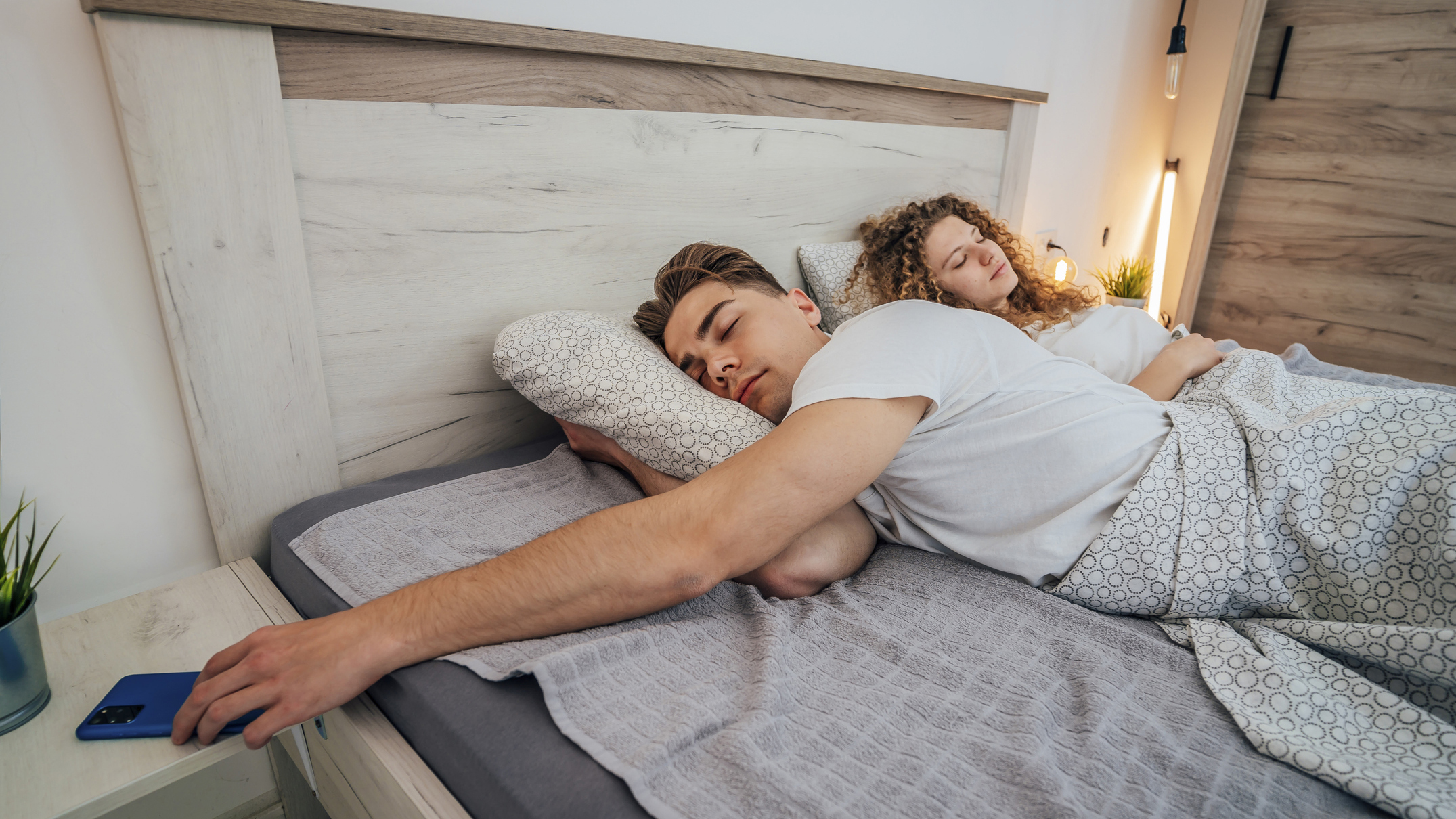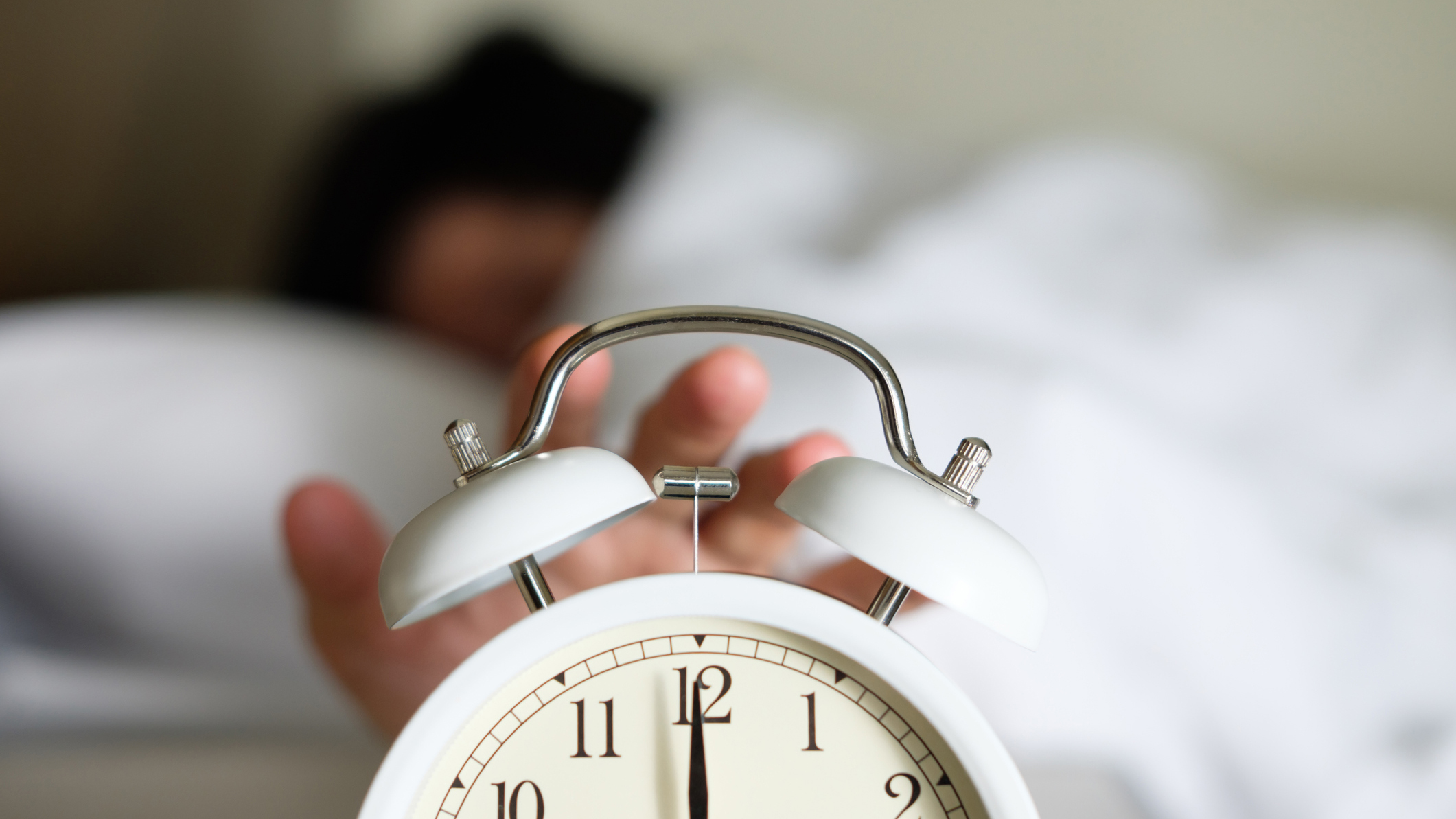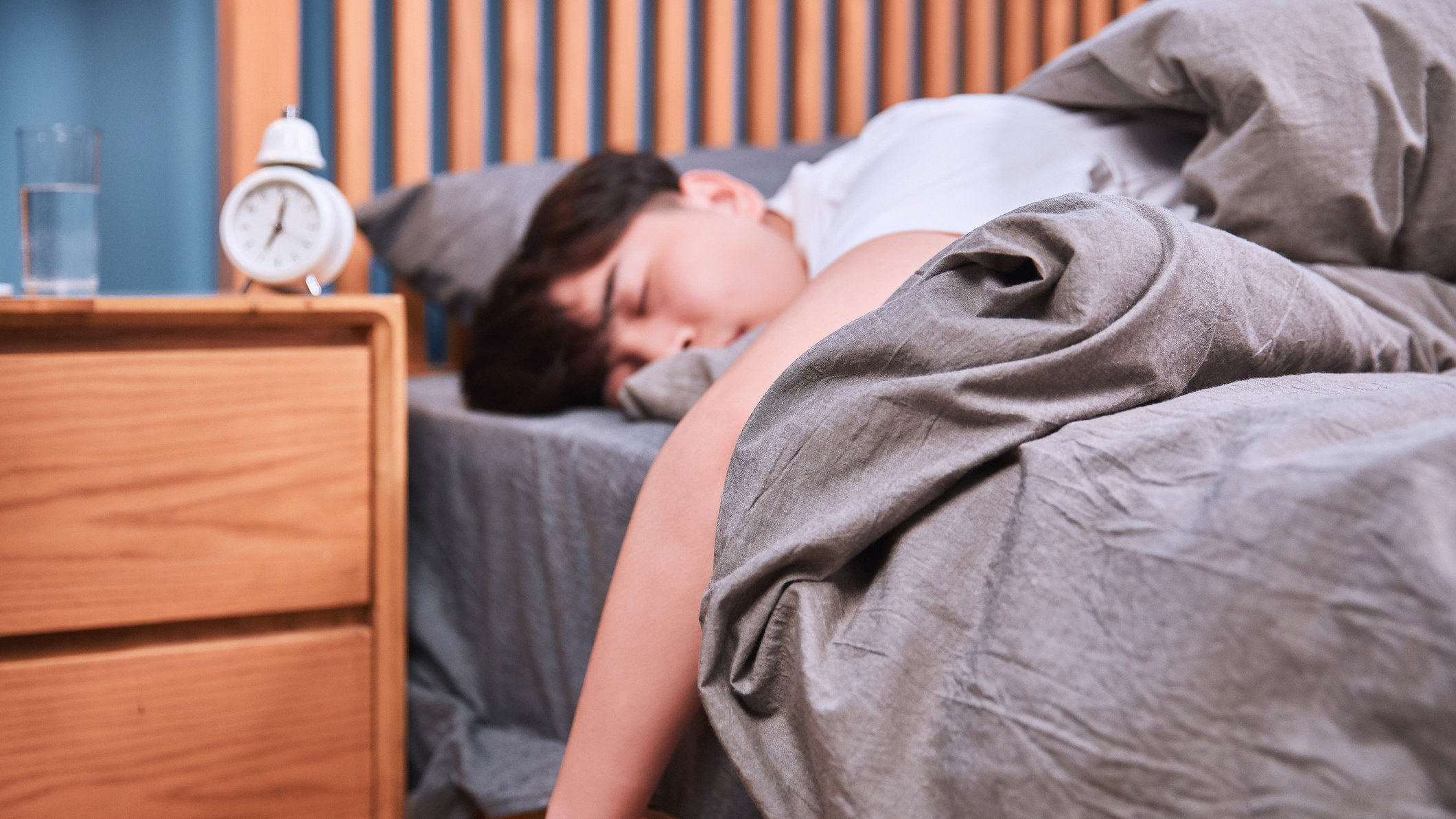Is too much sleep bad for you? America’s top sleep doctor answers
How to stop oversleeping, according to Dr Michael Breus

Sleep is vital, but sometimes you really can have too much of a good thing. Cue oversleeping. The amount of sleep a person needs varies by age, their health, activity levels and lifestyle habits.
But some people sleep for much longer than they need to. So what’s going on? And how can you stop oversleeping, reclaim your mornings and shrug off excessive daytime sleepiness?
We recently spoke to Dr Michael Breus, America’s foremost sleep doctor and Chief Sleep Advisor at Purple, one of the best mattress brands in the US, to find out if sleeping too much is a problem and why. Here’s what he had to say…
Is too much sleep bad for you?
Regularly sleeping too much is linked with a lot of the same health risks as getting too little sleep, and can be a sign of disordered sleep. As Dr Breus explains: “It may be connected to a mental health issue such as depression.
“It’s often a signal that a person is experiencing poor sleep quality, and it can be a sign of a clinical sleep disorder, including obstructive sleep apnea or narcolepsy.”
The health risks of oversleeping include, “heart disease, metabolic problems such as diabetes and obesity, and cognitive issues including difficulty with memory.”

What are the symptoms of oversleeping?
“Hypersomnia is the clinical term for excessive sleeping, and excessive sleepiness during the day.” Says Dr Breus. “Like its counterpart insomnia, hypersomnia has several core symptoms:
Sign up to get the BEST of Tom's Guide direct to your inbox.
Get instant access to breaking news, the hottest reviews, great deals and helpful tips.
- Sleeping for extended hours at night (typically well beyond the seven to eight-hour general norm)
- Difficulty waking up in the morning (including sleeping through an alarm)
- Trouble rising from bed and starting the day
- Grogginess on and off or consistently throughout the day
- Trouble concentrating
“What I’m not talking about here is the once in a blue moon night of extra sleep you might need after coming up unexpectedly short on sleep. That happens to everyone occasionally.”
What is the cause of too much sleep?
It’s impossible to list all the possible reasons for oversleeping as it really depends on your physical and mental health, your lifestyle and more. According to Dr Breus, “There are many possible causes of oversleeping, from misaligned chronotypes to poor sleep hygiene, caffeine and alcohol abuse, medications, or something more serious like depression or a sleep disorder.” (Here's a guide to the sleep chronotypes, if you're not familiar with that term.)
Depression is a common cause of oversleeping, but the symptoms can often be at odds with one another. “Among people with depression, sleep difficulties often take shifting, variable forms. People with depression may experience symptoms of both insomnia and hypersomnia.”
Consistency is the most important element of a strong, health-promoting sleep routine
Dr Michael Breus
Insomnia is where you have trouble falling or staying asleep. Hypersomnia is excessive sleepiness.
A 2014 study looked at how often insomnia and hypersomnia occur together in adults with depression in the US. “Scientists found that more than 27% have what’s known as ‘co-occurring’ insomnia and hypersomnia,” Dr Breus reveals. “They also found some other striking shared characteristics. People with depression who demonstrated both insomnia and hypersomnia had:
- More severe depression
- Higher rates of suicide planning and attempts
- Higher rates of impulse control disorder
- Greater likelihood of drug use disorder
Restless leg syndrome can also cause issues with sleeping at night, as it's a highly disruptive condition that can make you feel like your skin is crawling and the only way to get respite is to move your limbs. We asked a doctor to talk us through how to stop restless leg syndrome from ruining your sleep and it starts with knowing your RLS triggers.

How to stop oversleeping-and why you should
The odd night of oversleeping is nothing to worry about and most of us do it from time to time. But if this happens regularly then there are some things to look out for, including if you feel super-tired in the day regardless of how much you sleep at night.
“If you notice changes to your sleep patterns and sleep needs, including an uptick in your level of tiredness or the amount you’re sleeping, that’s important information to share with your physician.” Cautions Dr Breus.
“Hypersomnia is often connected to another health condition. When you identify the underlying cause, you and your doctor can work to address both that condition and oversleeping. That includes other sleep disorders, such as obstructive sleep apnea.
He also recommends that you, “Limit alcohol to improve your sleep quality and sleep patterns. Drinking too much, too frequently and too close to bedtime can disrupt circadian sleep-wake rhythms and undermine high-quality sleep, leading to a need to oversleep.”
Consistency is key to a good sleep routine
None of us set out to accrue a sleep debt, but there are times when it’s impossible to sleep well every night. You might be a new parent, for example, and sleeping for more than a couple of hours at a time seems like a distant memory. But going without good sleep will lead to an increase in oversleeping as you try to compensate.
“These irregular sleep patterns aren’t healthy, for your body or your mind. Consistency is the most important element of a strong, health-promoting sleep routine,” shares Dr Breus.
”Identify the right amount of sleep you need then set up a schedule that enables you to meet that need routinely. It can take a bit of trial and error to get the amount right.” The key to figuring out if you’re getting enough good sleep? “Pay close attention to how you think and feel throughout the day.”
How to get a better night's sleep
As well as creating a bedtime routine that relaxes you, and being as consistent as possible with your wake-up time, take a good look around your bedroom. Is it a calm, quiet and cool place for sleeping? If not, take a few minutes each night to clear away the clutter, get a cool breeze flowing in and to dim lighting to create a more zen atmosphere.
In addition to your mattress, also make sure you're sleeping on the best pillow for your body and sleep position, as the wrong one can throw your spine out of alignment. For anyone dealing with restlessness or anxiety at night, consider trying a good weighted blanket to help soothe and calm you in bed.
Next: I used the Lumen breathalyzer to track my metabolism for a month — and this is what happened.

Claire is a qualified journalist and Certified Sleep Science Coach with over 16 years’ product review experience, and who is connected to a wealth of globally renowned sleep experts including mattress designers and buyers, neuroscientists, and doctors of sleep medicine. Claire is responsible for all mattress and sleep content published on Tom’s Guide and is our expert on Saatva, DreamCloud, and Nectar mattresses. Claire is also certified to advise people on how to choose a mattress that suits their needs and budget, as well as helping them to create a nighttime routine and bedroom environment that helps them sleep better. As our Senior Sleep and Mattress Editor, Claire oversees our rigorous testing procedures for our mattress reviews, while leading our team of specialist reviewers and writers who report on all the latest sleep products.
